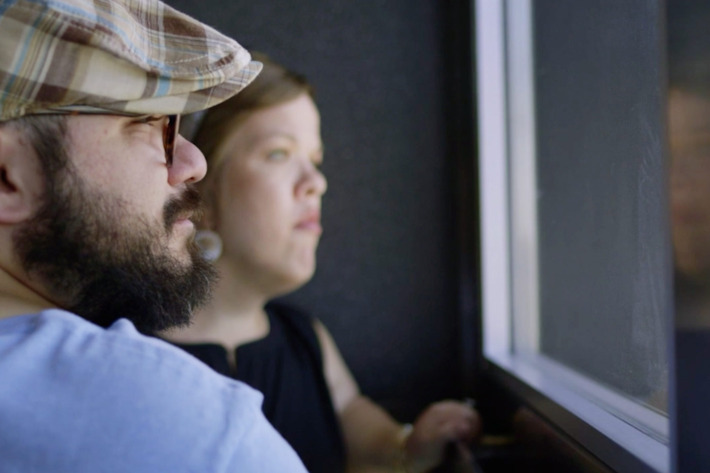Days ahead of the theatrical debut of the documentary film adapted from his book, Far From the Tree, author Andrew Solomon reflected on the creative and emotional differences between the mediums of film and text. “My Stories Become Someone Else’s: Adapting a Book into Film” is a fascinating essay.
Solomon put a decade into researching and writing his magisterial book, centered in interviewing more than 300 families. It won the nonfiction Anisfield-Wolf Book Award in 2013. Far From the Tree explores the families of children who occupy a markedly different identity from their parents, with chapters on deafness, dwarfism, Down syndrome and autism; on the families of prodigies; parents bringing up children conceived in rape; others whose children have committed serious crimes; and families with transgender children.
Converting Solomon’s 700-page text into a 93-minute film required some hard decisions. Early on, Rachel Dretzin, the film’s director, suggested a fresh slate of families, rather than the ones Solomon featured in his book. Writing in the New York Times, Solomon says he balked but then realized “their stories were by now too resolved for film, and we needed to depict the ambiguities and ambivalences of people still struggling to make sense of their lives.”
Solomon, 54, argues that both mediums have their nuances: where books are more definitive, films are more intimate. Books are girded in more context, with footnotes and indexes and bibliography, while watching the stories on film makes for “a less armored version of the truth.” In the movie, just six families tell this truth.
Amid them, Solomon found his transition from author to subject unsettling: “It felt weird to have my own story told in the film. Things I had been comfortable writing about in the privacy of my study made me anxious when shared on the screen.” Still, he reflects, he had asked the same of others.
Solomon wrote Far From the Tree “to champion a more tolerant and accepting society.” Six years later, the film is opening with far more urgency, amid a strained and difficult political climate.
“[The film] doesn’t preach with any particular righteousness,” Solomon writes, “but it inevitably speaks to the politics of this moment, and perhaps that’s a purpose better suited to a movie than to a book.”
The film opens July 20 in select theaters nationwide. Northeast Ohio residents will be able to catch the film at the Cedar Lee theater beginning August 24.
